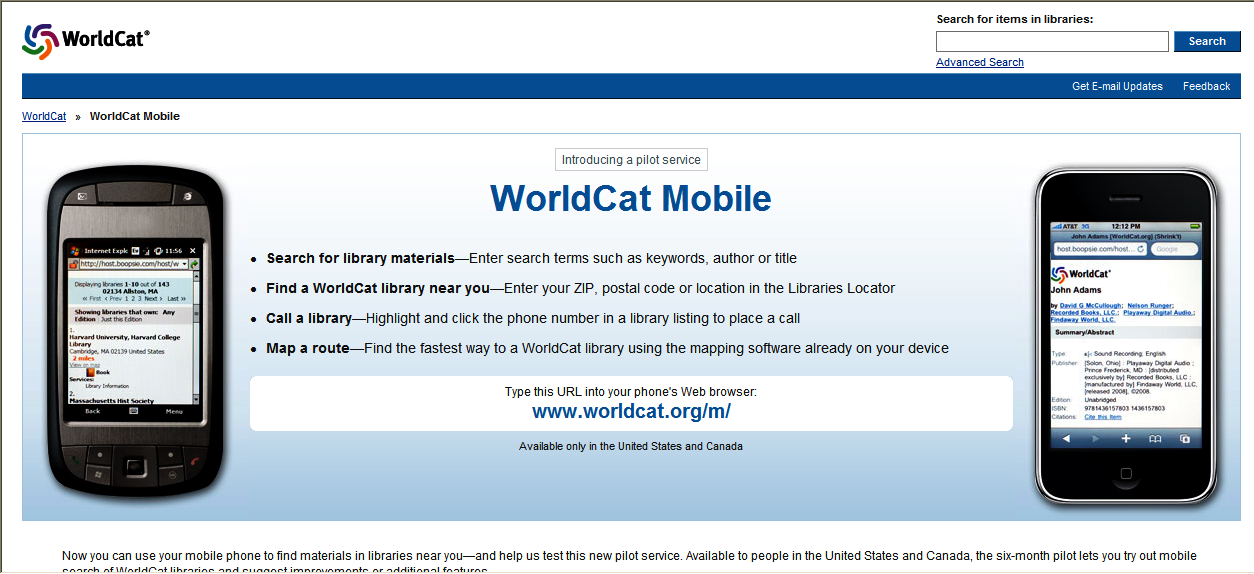Worldcat is a catalogue that links users to approximately 10,000 libraries worldwide and contains details of over 1.2 billion items.
People interested can use Worldcat just as a catalogue, to see if an item is available in a library near them. The advantage of using Worldcat is that if you are a member of several public library services, one simple Worldcat search can list where the item is located. By simply selecting what type of item you are looking for (books, DVDs, CDs and articles), entering a search term and then your postcode, Worldcat will then list the libraries nearest you that hold that item. Often Worldcat can give you the distance from your postcode to the nearest libraries with the item. Users can also set their ‘favourite’ libraries which will be listed first. Currently some of the Victorian libraries that have their holdings listed on Worldcat are:
- State Library of Victoria
- Bayside
- Central Highlands
- Corangamite
- Darebin
- East Gippsland
- Glen Eira
- Kingston
- Melton
- Monash
- Moreland
- Port Phillip
- Stonnington
- Wellington
- West Gippsland
- Yarra Melbourne
- Yarra Plenty public library services,
- RMIT
- La Trobe and
- Deakin Universities as well as
- Dandenong High School and
- Vision Australia.
Please be aware that some results pertaining to libraries holding particular items are not always 100% correct. Some items are listed in Worldcat results and some are not. Not sure whether that is a Worldcat issue or participating library issue.
However, users can also signup for a free account that enables them to add content to the Worldcat website. Currently lists (think Librarything or lists created in Amazon), bibliographies and reviews can be added to the site. Users can modify or delete their own review, ‘but other users can edit information that has been contributed under Details (similar to Wikipedia).’
For those library staff out there that occasionally need to do some original cataloguing if items cannot be found on SCIS, Library Link Victoria or Libraries Australia, Worldcat is a great last resort before having to invent the wheel yourself.
Worldcat are also currently trialling Worldcat mobile where according to their website, users can:
- Search for library materials—Enter search terms such as keywords, author or title
- Find a WorldCat library near you—Enter your ZIP, postal code or location in the Libraries Locator
- Call a library—Highlight and click the phone number in a library listing to place a call
- Map a route—Find the fastest way to a WorldCat library using the mapping software already on your device


